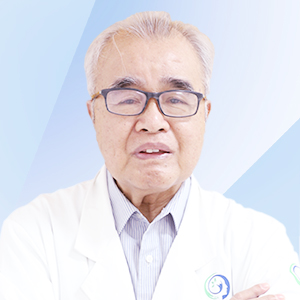广州附医华南医院精神科 > 强迫症 >
不要动不动就说“逼疯”强迫症!你真的了解强迫症吗?
来源:广州附医华南心理精神专科医院哪家好 日期:2018-01-08
不知道什么时候起,“强迫症”这个词语越来越频繁的出现在我们的生活中。
微博上也有很多段子来调侃强迫症,很多人会发一些构图不整齐的图片来自黑或者调侃要“逼疯”强迫症。
那么,大家口中所谓的强迫症到底是怎么一回事呢?
强迫症(OCD)是一种神经精神疾病。主要表现为强迫行为和强迫思维。
人们常常不由自主的反复做一些毫无意义、甚至违背自己意愿的事情或者动作。
患者克制这种冲动往往效果甚微,造成患者焦虑和痛苦的情绪。比如,很多人控制不住反复洗手,或者怀疑门窗是否锁好,或者东西必须排放整齐等行为。
这些行为是由于无法克制强迫思维产生焦虑感进而不得不去做的。但是,这些思维是患者本身产生的,并非外界强加干扰的。
目前在卫生组织(WHO)所做的疾病调查中发现,强迫症已成为15~44岁中青年人群中造成疾病负担比较重的20种疾病之一。
强迫症的病因目前尚无定论,主要认为是与社会环境,性格特点,心理因素,不良事件刺激,遗传和神经-内分泌等因素有关。
许多研究表明患者在比较早发病经历过一些不良生活事件,如人际关系紧张、婚姻问题、学习工作受挫等等。
患者有追求完美、对自己和他人高标准严要求的倾向,甚至部分患者病前就有强迫型人格,其内心所经历的矛盾、焦虑然后只能通过强迫性的症状表达出来。
但是,大家不必太过紧张。几乎所有的人可能都经历过强迫现象。一般来说,这种强迫现象程度轻微,持续时间短,不引起严重焦虑等情绪障碍的话,就是一种正常的表现。如果情况严重,影响正常生活工作的话要尽快就医,及时治疗。
关于强迫症Symptoms of Obsessive-Compulsive Disorder,你还想了解更多吗?下面北京精神科医院 北京德胜门中医院,北京强迫症治疗医院给大家推荐一篇国外的文献阅读,希望您对强迫症有更多的了解。
Aug. 17, 2000 -- A little obsessive and compulsive behavior may be a good thing. It helps us make sure the iron is really off before we leave the house, or brush our teeth after every meal. But for those with diagnosed obsessive-compulsive disorder, life can become a nightmare of intrusive thoughts and ritualistic and repetitive actions.
Treating patients with obsessive-compulsive disorder is not easy. Many feel that the best therapy is a type of talking therapy called cognitive behavior therapy. Sometimes, if patients don't respond or respond only partially, antidepressants -- usually selective serotonin reuptake inhibitors (SSRIs), like Prozac -- are prescribed.
St. John's wort, or Hypericum perforatum, an herbal medication, has antidepressant activity. It also appears to work pretty much the same way as the SSRI antidepressants. So researchers decided to give it a try in patients with obsessive-compulsive disorder.
And guess what? It worked, at least as well as SSRIs, according to a report in the August issue of the Journal of Clinical Psychiatry. Almost half of the people in a small trial group claimed to have significant improvement in their symptoms after taking one of the active ingredients of St. John's wort for three months.
"It appears that people responded favorably, but ... it's still too early to use it with any degree of certainty," cautions study author Kenneth A. Kobak, PhD. "I wouldn't go out and assume it is an effective treatment at this point, and I wouldn't use it in place of standard treatments that are out there that have been thoroughly tested," However, he writes that he and his colleague on the study are sufficiently encouraged by the findings to conduct a larger and better-designed trial of St. John's wort for obsessive-compulsive treatment.
Kobak, who is with the Dean Foundation for Health Research and Education in Middleton, Wis., and co-investigator Leslie Taylor, MD, treated a group of 12 obsessive-compulsive patients with hypericin, which is the active ingredient in St. John's wort. Behavior was monitored weekly by both the patients and their physicians.
Obsessive-compulsive symptoms improved notably within a week after treatment began and continued to improve throughout the trial. About 40% of the patients were found to be "much improved" or "very much improved" by both the clinicians and the patients themselves. About half indicated that their symptoms were "minimally improved," and only one patient was found to be unchanged.
The treatment was well tolerated. Three patients reported diarrhea and two reported restless sleep. One patient left the trial early because of a rash. Interestingly, "this treatment appears less effective for people who fail to respond to ... SSRIs," Kobak tells WebMD.
"It's neat that some other things other than standard medications are popping up that might be helpful," says Michael Jenike, MD, of Harvard Medical School, noting that about one-third of patients do not respond well to currently available medications.
In his experience, Jenike has had patients with obsessive-compulsive disorder who have used St. John's wort. "I haven't seen any dramatic successes, but most of the people I use it for are sicker patients who have failed other drugs. In their study, the ones that had already failed other drugs do not do very well." Jenike is also the director of the scientific advisory board of the Obsessive-Compulsive Foundation, which supported this study.
He adds: "People may ask, 'Why not use [St. John's wort], since it probably has fewer side effects, [and] is safer and less difficult to take than SSRIs?' My answer is that this report is really the only evidence that we have that St. John's wort might do anything [for obsessive-compulsive disorder]. The other drugs have been carefully studied, so they would still be the [drugs to choose]. But if this shows [in larger studies] it works as well as the other drugs, people might eventually pick St. John's wort over the SSRIs."
Patients sometimes take herbal compounds in addition to prescribed medications, and often without their physicians' knowledge, says Kobak. He urges patients to proceed with caution, because issues such as standardization of medications, contraindications, and drug interactionshave not yet been well examined for many herbal medicines. He adds that there is also little information about any interactions between St. John's wort and other medications. "At a minimum," Kobak tells WebMD, "always let your physician know you are taking any herbal compounds."
温馨提示:当你意识到自己已经被强迫症纠缠时,一定要主动寻求心理咨询师和心理医生的帮助,及早控制住这个“害人精”,生活才能从新步入正轨。北京的中医院哪家冶强迫症比较好?北京德胜门精神科医院是一所真正具有中医的中医院,专业治疗失眠症,抑郁症、强迫症医院的翘楚。北京德胜门中医院可以在线咨询哦,还可以在线挂号。
本文章链接地址:http://www.sdjtxh.com/qpz/755.html 上一篇:青春期孩子易患手淫强迫症 下一篇:逼死强迫症头像、照片、动图 来吧治好强迫症再也不怕网络暴力广州看精神病医院HOSPITAL

出诊医生EXPERT
推荐阅读ANSWER
更多- 广州治疗精神障碍门诊挂号平台[04-21]
- 广州专业的心理疏导医院.[04-21]
- 广州专业的抑郁症专业医院[04-21]
- 广州市治疗精神分裂症医院在什么地方[04-18]
- 广州市专业的儿童心理问题医院哪家好[04-18]
- 广州专业的心理疏导医院[04-18]
- 广州检查心理咨询门诊挂号平台[04-17]
- 广州市检查睡眠障碍找那个医院[04-17]
- 广州市专业的儿童心理问题专业医院[04-17]
- 广州治疗抑郁症去哪家医院[04-16]









